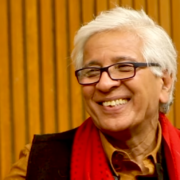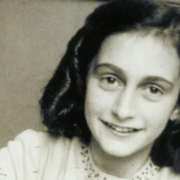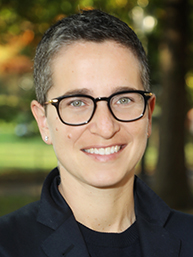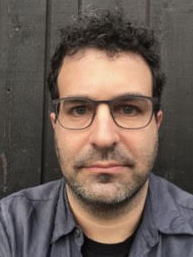The Past as Presence: A Novelist and Psychoanalyst Compare Notes
Moderator: Lisa Gornick PhD
Tuesday, June 4, 2024 at 8 PM
Location: Columbia University Faculty House, 64 Morningside Drive
(enter via 116th St. click here for directions)
or via Zoom
 Writers of historical fiction create a conversation between history and interiority in imagining their characters’ lives, much like psychoanalysts work to understand patients. The intersections between the psychoanalytic process and fiction writing are all the greater when the novelist draws on her own family history. In her novel, Kantika (“song” in Ladino), novelist Elizabeth Graver creates a duet between the actual migration story of her Sephardic Turkish maternal grandmother, Rebecca, and invented scenes and inner lives. Her sister, Ruth Graver, a psychoanalyst and psychiatrist, has a particular interest in cultural formulation, as well as attachment theory. Moderated by novelist and psychoanalyst Lisa Gornick, the Graver sisters will explore how fictional transformations echo psychoanalytic ones.
Writers of historical fiction create a conversation between history and interiority in imagining their characters’ lives, much like psychoanalysts work to understand patients. The intersections between the psychoanalytic process and fiction writing are all the greater when the novelist draws on her own family history. In her novel, Kantika (“song” in Ladino), novelist Elizabeth Graver creates a duet between the actual migration story of her Sephardic Turkish maternal grandmother, Rebecca, and invented scenes and inner lives. Her sister, Ruth Graver, a psychoanalyst and psychiatrist, has a particular interest in cultural formulation, as well as attachment theory. Moderated by novelist and psychoanalyst Lisa Gornick, the Graver sisters will explore how fictional transformations echo psychoanalytic ones.
Presenters:
Elizabeth Graver’s fifth novel, Kantika, was awarded a National Jewish Book Award and the Edward Lewis Wallant Award and chosen as a Best Historical Novel of 2023 by the New York Times. Her fourth novel, The End of the Point, was long-listed for the 2013 National Book Award in Fiction. Her other novels are Awake, The Honey Thief, and Unravelling. Her story collection, Have You Seen Me?, won the 1991 Drue Heinz Literature Prize. Her work has been anthologized in Best American Short Stories and Best American Essays. She teaches at Boston College.
Ruth Graver, MD, is on the faculty of the Columbia Psychoanalytic Center, where she teaches, supervises, and currently co-chairs the CAPE program for Analyzing and Supervising Candidates. Her publications explore psychoanalysis and attachment theory and the professional development of psychoanalysts. She was a co-author of the book Psychodynamic Formulation: An Expanded Approach (2022), which developed sociocultural themes in psychodynamic formulation. She received the 2016 Howard Klar Teaching Award and the 2022 George S. Goldman Award for Achievement for Clinical Psychoanalysis and/or Psychoanalytic Education.
Moderator:
Lisa Gornick, PhD, is a clinical psychologist and graduate of the Columbia University Center for Psychoanalytic Training and Research, where she is on the voluntary faculty. No longer in practice, she is the author of five works of fiction: Ana Turns (Keylight Books); The Peacock Feast, Tinderbox, and Louisa Meets Bear (all jointly published by Farrar, Straus and Giroux and Picador); and A Private Sorcery, (Algonquin). Her stories and essays have appeared widely, including in The New York Times, The Paris Review, Prairie Schooner, Salon, Slate, Real Simple, and The Wall Street Journal.
This evening is chiefly an in-person event, though there will also be a hybrid component.






 Gila Ashtor, PhD, LP, is an Assistant Professor in Clinical Psychoanalysis at Columbia University and a new faculty member at the Columbia University Center for Psychoanalytic Training and Research. This semester, she will be teaching a course called “Radical Psychoanalysis” on the interventions of Jean Laplanche, which will introduce candidates to the work of Laplanche alongside contemporary work in queer and critical theory. She specializes in queer theory, gender and sexuality, affect studies, and disorders of selfhood. She completed her psychoanalytic training at IPTAR in New York City, where she is currently on the Faculty, teaching Freud. She is also on the faculty at NYU’s Postdoc program where she will launch a new course called “The Queer Self” as part of the Contemporary Freudian track this upcoming spring. In addition to teaching psychoanalysis and critical theory, she also teaches in Columbia’s MFA program, where she works with nonfiction writers to develop their stories by integrating psychoanalytic thought.
Gila Ashtor, PhD, LP, is an Assistant Professor in Clinical Psychoanalysis at Columbia University and a new faculty member at the Columbia University Center for Psychoanalytic Training and Research. This semester, she will be teaching a course called “Radical Psychoanalysis” on the interventions of Jean Laplanche, which will introduce candidates to the work of Laplanche alongside contemporary work in queer and critical theory. She specializes in queer theory, gender and sexuality, affect studies, and disorders of selfhood. She completed her psychoanalytic training at IPTAR in New York City, where she is currently on the Faculty, teaching Freud. She is also on the faculty at NYU’s Postdoc program where she will launch a new course called “The Queer Self” as part of the Contemporary Freudian track this upcoming spring. In addition to teaching psychoanalysis and critical theory, she also teaches in Columbia’s MFA program, where she works with nonfiction writers to develop their stories by integrating psychoanalytic thought. Ben Kafka, PhD, LP, is a psychoanalyst in private practice in Greenwich Village. He received his B.A. from Brown and his Ph.D. in European intellectual and cultural history from Stanford. After graduate school he spent time at Princeton as a postdoctoral fellow in the humanities before moving, in 2007, to NYU, where he was tenured faculty in the Department of Media, Culture, and Communication, with cross-appointments in History and Comparative Literature.
Ben Kafka, PhD, LP, is a psychoanalyst in private practice in Greenwich Village. He received his B.A. from Brown and his Ph.D. in European intellectual and cultural history from Stanford. After graduate school he spent time at Princeton as a postdoctoral fellow in the humanities before moving, in 2007, to NYU, where he was tenured faculty in the Department of Media, Culture, and Communication, with cross-appointments in History and Comparative Literature.